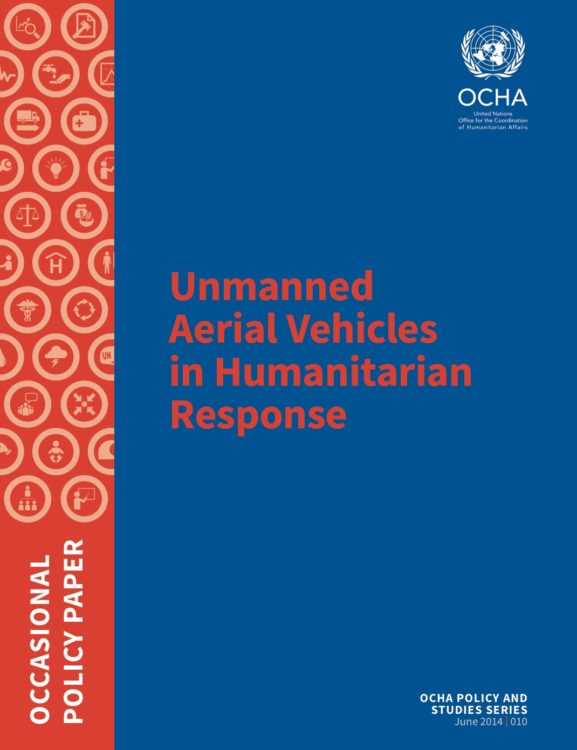
OCHA has just released an engaging report on the use of UAVs in humanitarian and non-lethal domains, titled Unmanned Aerial Vehicles in Humanitarian Response.
The ICT4Peace Foundation welcomes the report and endorses the content therein, including the need for more critical analysis around the ethical frameworks and implications around the use of UAVs for non-lethal purposes, including peacekeeping and peacebuilding.
These are concerns the Foundation has articulated through it’s involvement with the UAViators network, as a founding member and, in when setting up the network, input around the ethics of UAV usage for humanitarian purposes.
The Foundation has also explored the use of UAVs for non-lethal purposes in it’s work with a number of agencies and departments with the UN involved in crisis information management. In fact, at this year’s annual retreat for CiMAG, there was a special session on UAV’s for peacekeeping and peacebuilding domains, details of which can be read here. Salient points of discussion pre-figure that which is noted in the OCHA report, and included, the need for regulation, ethical concerns, legal frameworks and possible foci for innovation and evidence based research, the need for UN leadership in this area and the dangers around the use of UAVs in violent conflict.
Sanjana Hattotuwa, a Special Advisor at the Foundation, has for some months carefully curated a unique magazine on FlipBoard around the use of UAVs in humanitarian and non-lethal domains.
OCHA’s report is a solid foundation for more work around the use of UAVs in, as the report avers, natural disasters, slow onset emergencies and early recovery. The ICT4Peace Foundation will continue to work with OCHA and other UN actors in this regard to help ideate, innovate and critical analyse current praxis.
